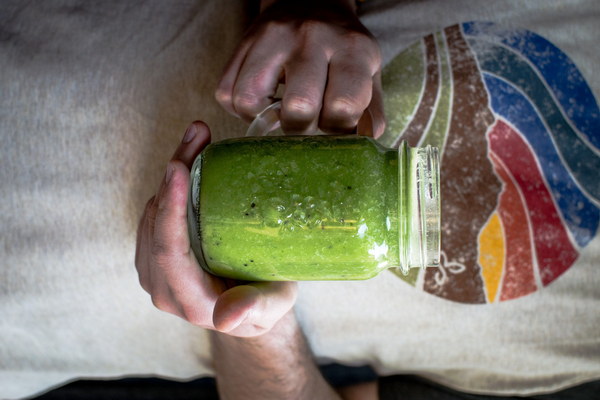Healing with Nutrition A Comprehensive Guide to Tumble-Proofing Your Diet
In today's fast-paced world, accidents can happen at any moment, and falling is one of the most common mishaps. When we suffer from a fall, our bodies can sustain various injuries, from minor cuts and bruises to more severe fractures or concussions. While medical treatment is crucial, the role of nutrition in aiding the healing process should not be overlooked. This article delves into the importance of a balanced diet after a fall, offering a comprehensive guide to tumble-proofing your diet with essential nutrients.
1. Protein: The Building Blocks of Healing
Protein is vital for tissue repair and muscle recovery after an injury. It helps in the synthesis of collagen, a key component of connective tissue, and aids in the healing of bones, tendons, and ligaments. Good sources of protein include lean meats, fish, poultry, eggs, dairy products, legumes, and nuts. Consuming an adequate amount of protein ensures that your body has the necessary ingredients to mend itself effectively.
2. Vitamin C: The Collagen Helper
Vitamin C is essential for the production of collagen, the protein that provides structure to skin, tendons, ligaments, and blood vessels. Collagen is crucial for the healing of wounds and the repair of damaged tissue. Citrus fruits, strawberries, kiwis, bell peppers, and leafy greens are rich in vitamin C and can help speed up the healing process.
3. Vitamin D: The Sunlight Vitamin
Vitamin D is vital for calcium absorption and bone health. It plays a significant role in bone repair and fracture healing. Sunlight is the best source of vitamin D, but if you're not able to get enough sun exposure, consider incorporating fatty fish, fortified dairy products, and egg yolks into your diet.
4. Calcium: The Bone Builder
Calcium is a vital mineral for maintaining bone density and strength. It works with vitamin D to help your body absorb calcium effectively. Good sources of calcium include dairy products, leafy greens, almonds, and sardines. Ensuring you have enough calcium in your diet can help prevent fractures and support bone healing.
5. Magnesium: The Relaxation Mineral
Magnesium is involved in over 300 biochemical reactions in the body, including muscle and nerve function, protein synthesis, and blood glucose control. It also plays a role in regulating calcium levels and muscle relaxation. Magnesium deficiency can contribute to muscle cramps and weakness, which can hinder recovery. Foods rich in magnesium include almonds, cashews, black beans, quinoa, and dark chocolate.
6. Omega-3 Fatty Acids: The Inflammation Fighters

Omega-3 fatty acids are known for their anti-inflammatory properties, which can help reduce pain and swelling associated with injuries. Fish oil, flaxseeds, chia seeds, and walnuts are excellent sources of omega-3 fatty acids. Including these foods in your diet can promote faster healing and reduce the risk of chronic inflammation.
7. Hydration: The Foundation of Health
Proper hydration is essential for overall health and healing. Water helps transport nutrients to cells, remove waste products, and maintain blood volume. Aim to drink at least 8 cups (64 ounces) of water per day, and adjust your intake based on your activity level and climate.
8. Antioxidants: The Detoxifiers
Antioxidants help protect your body from free radicals, unstable molecules that can cause damage to cells and tissues. Foods rich in antioxidants, such as berries, dark chocolate, green tea, and nuts, can support your body's ability to heal by neutralizing free radicals and reducing inflammation.
Conclusion
Incorporating these essential nutrients into your diet can help support your body's healing process after a fall. By tumble-proofing your diet with a balanced intake of protein, vitamins, minerals, and antioxidants, you can ensure that your body has the resources it needs to recover quickly and effectively. Remember, while nutrition is an important aspect of healing, it's essential to consult with a healthcare professional for personalized advice and treatment for your specific injury.









